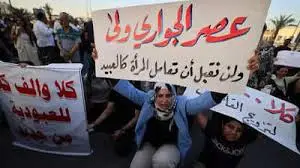jfid – The tragic death of Glen Malcolm Conning, a New Zealand pilot, in Papua on August 5, 2024, underscores the ongoing conflict and complex socio-political dynamics in the region.
Conning, employed by PT Intan Angkasa Air Service, was killed by suspected members of the West Papua National Liberation Army (TPNPB), a pro-independence armed group, shortly after landing his helicopter in Alama, a remote area in Central Papua.
Background of the Conflict
Papua has been a hotspot of tension since it was incorporated into Indonesia in 1969 following a contested UN-supervised referendum.
The referendum, known as the “Act of Free Choice,” has been widely criticized as unrepresentative, fueling a longstanding insurgency for independence by indigenous Papuans.
This incident is part of a broader pattern of violence involving the TPNPB, which has intensified its attacks in response to increased Indonesian military and infrastructure presence in the region.
The TPNPB claims that Indonesian military forces frequently use civilian aircraft for logistical support in conflict zones, leading to civilian aircraft being targeted as potential military transports.
Incident Details
Conning’s helicopter was attacked shortly after landing. The assailants released the passengers, who were indigenous Papuans, before allegedly setting the helicopter ablaze.
However, Amnesty International Indonesia disputes claims that the helicopter was burned, noting that photos show the helicopter intact.
The OPM, a political organization associated with the TPNPB, denied direct involvement, blaming Indonesian security policies for the tragedy and calling the area a restricted conflict zone.
International and Humanitarian Concerns
The killing has drawn international condemnation and raised humanitarian concerns. Amnesty International has called for a thorough investigation, citing the killing as a potential breach of international humanitarian law.
The New Zealand government is involved in consular efforts to investigate the incident and ensure justice for Conning’s family.
The ongoing conflict in Papua highlights the challenges of balancing development, security, and indigenous rights. The region remains volatile, with both state and non-state actors accused of human rights violations, including unlawful killings and displacements.
Conclusion
Glen Malcolm Conning’s death is a poignant reminder of the complexities and dangers in Papua. It underscores the need for comprehensive peace efforts, respect for indigenous rights, and accountability for all parties involved.
As the situation unfolds, it remains crucial for international bodies and human rights organizations to monitor and engage with the developments in Papua to prevent further loss of life and ensure the protection of civilians in conflict zones.











